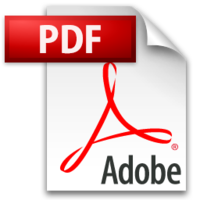Background
Ubiquitous sensors, devices, networks and information are paving the way towards a smart world in which computational intelligence is distributed throughout the physical environment to provide reliable and relevant services to people. The smart world, starting with smart things such as the smart objects, smart city, smart manufacture and smart systems, will eventually encompass all aspects of the physical world, social world and mental world. The smart world is set to be the next important stage in human history. We have to be aware of the essential problems and crucial issues affecting in building truly smart worlds that benefit humanity, and simultaneously safeguard the natural environment for sustainable development and evolution.
Objective
Task Force on Smart World (TF-SW) will be an ideal platform to gather scientists, researchers and engineers who share common interests on smart related computing technologies and applications. The objectives are three folds: (1) to promote research on wide scope of smart world; (2) to organize a series of activities for research discussion and exchange; (3) to contribute IEEE CIS with attracting more people and extending research in the emerging area under supervision and support by ETTC.
Scope
The smart world is to enhance everyday things with intelligence so that many tasks and processes could be simplified, the physical spaces where people interact like the workplaces and homes, could become more efficient, safer and more enjoyable. It consists of numerous "smart things" that can be endowed with different levels of intelligence, and may be context-aware, active, interactive, reactive, proactive, assistive, adaptive, automated, sentient, perceptual, cognitive, autonomic and/or thinking. Research on smart world is an emerging research field covering many areas. A series of challenge issues exist to move from the current level of computing services to the smart world of adaptive and intelligent services. The Task Force on Smart World is to promote research covering science, technologies, applications and related categories on smart world, and provides a high-profile, leading-edge platform for researchers and engineers to collaboratively explore the state-of-art advances and innovations on smart world. The scope of this task force covers mainly four aspects:
-
Smart Objects and Interactions
Smart chips, tags, sensors, devices, wearables, goods, appliances, materials, textiles, etc.
Smart software, OS, programming, tools, interfaces, power/energy, reliability, etc.
-
Smart Systems and Services
Smart sensor networks, personal/body networks and systems, programming models, etc.
Smart services, context-aware systems, smart clouds, smart big data processing, etc.
-
Smart Environments and Applications
Smart home, office, building, shop, campus, factory, farm, city, urban computing, etc.
Smart healthcare, transportation, energy consumption, environment protection, etc.
-
Personalization and Social Aspects
Mobile social computing, crowd sensing, human modeling and mining, etc.
Smart Robots and robots social intelligence
Personalized recommendations, security, privacy, safety, affect and legal issues
Chair
Jianhua Ma, Hosei University, Japan
Vice Chairs
Laurence T. Yang, St. Francis Xavier University, Canada
Huansheng Ning, Beijing University of Science and Technology, China
Didier EL Baz, LAAS-CNRS, France
Active Chairs
Amit Kumar Pandey, Aldebaran Robotics, Softbank Group, France
Yunchuan Sun, Beijing Normal University, China
Special Issue Chair
ZhangBing Zhou, China University of Geosciences (Beijing), China
Advisory Board
Bruno Defude, Telecom SudParis, University of Paris Saclay, France
Jamal Deen, McMaster University, Canada
Jiannong Cao, Hong Kong Polytechnic University, Hong Kong
Julien Bourgeois, University of Franche-Comté, France
Stephen S. Yau, Arizona State University, USA
Members
Amit Kumar Pandey, Aldebaran Robotics, Softbank Group, France
Bernady O. Apduhan, Kyushu Sangyo University, Japan
Bin Guo, Northwestern Polytechnical University, China
Daqiang Zhang, Tongji University, China
Gang Pan, Zhejiang University, China
Guanling Chen, University of Massachusetts Lowell, USA
Hong Liu, Research Institute, Run Technologies Co., Ltd. Beijing, China
Hyoung Joong KIM,Korea University,Korea
Jianwei Niu, Beihang University, China
Jinjun Chen, University of Technology, Sydney
Julien Bourgeois, UFC/FEMTO-ST Institute, France
Kehua Guo, Central South University, China
Liming Chen, De Montfort University, UK
Lu Liu, University of Derby, UK
Marco Aldinucci, University of Torino, Italy
Rui Wang, University of Science and Technology Beijing, China
Runhe Huang, Hosei University, Japan
Sozo Inoue, Kyushu Institute of Technology, Japan
Tadashi Dohi, Hiroshima University, Japan
Weishan Zhang, China University of Petroleum (East China), China
Weiwei Fang, Beijing Jiaotong University, China
Wenbing Zhao, Cleveland State University, USA
Xing Xie, Microsoft Research, China
Yasha Wang, Peking University, China
Yuqing Sun, Shandong University, China
ZhangBing Zhou, China University of Geosciences (Beijing), China
Activities
The Special Section on Challenges for Smart Worlds in IEEE Access
-
The 2016 Smart World Congress (SWC 2016)
Toulouse, France, July 18-21, 2016
-
The 14th IEEE Int'l Conference on Pervasive Intelligence and Computing (PICom 2016)
Christchurch, New Zealand, August 2-5, 2016
-
The 9th IEEE International Conference on Internet of Things (iThings 2016)
Chengdu, China, December 15-18, 2016
-
Romart-City 2016: The International Workshop on Robotics and Smart City
Toulouse, France, July 18-21, 2016
Related Info
- J. Ma, H. Ning, R. Huang, H. Liu, L.T. Yang, J. Chen, G. Min, "Cybermatics: A Holistic Field for Systematic Study of Cyber-enabled New Worlds," in Access, IEEE, vol. 3, pp. 2270-2280, 2015.
- H. Ning, H. Liu, J. Ma, L.T. Yang, Y. Wan, X. Ye, R. Huang, "From Internet to Smart World,"

- J. Ma, Y. Zheng, H. Ning, L.T. Yang, R. Huang, H. Liu, Q. Mu, S.S. Yau, "Top Challenges for Smart Worlds: A Report on the Top10Cs Forum," in Access, IEEE , vol.3, no., pp.2475-2480, 2015.

- The 2015 Smart World Congress
- The 2015 Smart World Summit
- The Open Forum on Top10Cs: Top 10 Challenges for Smart World
- More Information about Smart World
Contact us
If you have any questions, please contact us via email:
smartworldtf@163.com
Comment and Join
Welcome to send an email to smartworldtf@163.com
if you have any comments or are interested in joining SW-TF committee.






